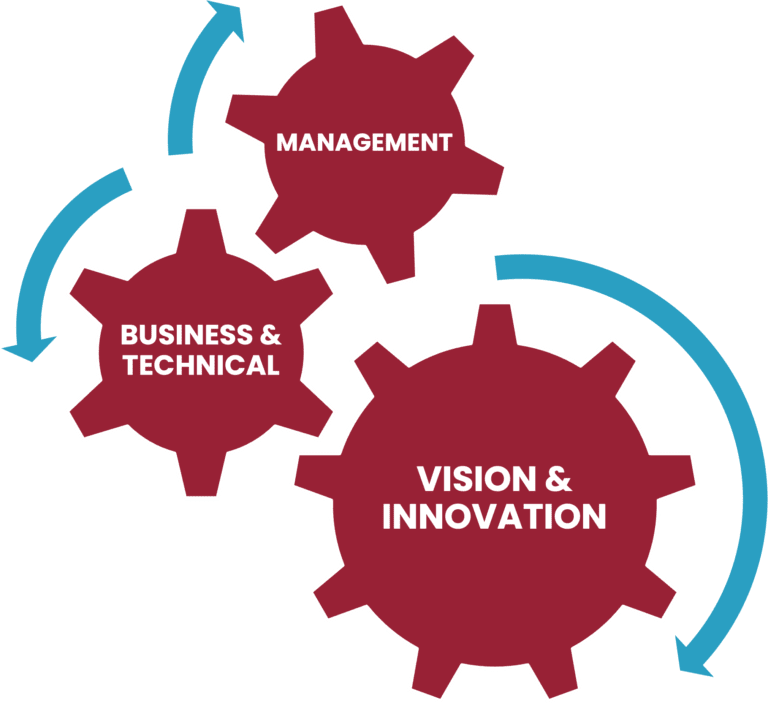Organizations across all industries are exploring and adopting digital technologies to adapt and remain competitive. As MIT’s technology leadership program states, “Traditional business models and processes are being redefined by applying transformational digital technologies in managing or driving disruption.”
Effective technology leadership involves a complex interplay of various competencies and skills. It can impact an organization’s ability to leverage technology for common organizational objectives such as make money, save money, and support compliance.
Let’s explore some key facets of technology leadership that all technology leaders should investigate for personal and organizational growth.
Management Competencies
- Relationship Management: Technology leaders must build strong relationships with stakeholders, including business leaders, team members, vendors, and customers. This requires strong communication, negotiation, and influencing skills.
- Resource Management: Skills in resource management, including budget, personnel, and time, are also key. This involves strategic decisions about sourcing (e.g., in-house development, outsourcing, cloud services) and investing in new technologies. In addition, technology leaders should emphasize the importance of constant upskilling.
- Change Management: Implementing new technologies often requires significant changes to processes, job roles, and culture. Technology leaders must be well-versed in managing change. This includes addressing resistance and ensuring that employees have the necessary skills and support. However, a critical part of change is understanding and assessing risk (cybersecurity threats, data privacy issues, and potential disruption to business operations).

Business and Technical Competencies
- Business Acumen: Paradigm is a vehement supporter of understanding business value in the context of digital technologies. However, for a technology leader to articulate business value, knowledge about the company’s operations, industry, competition, and customers is critical. Most importantly, these technology decisions should align with business objectives.
- Ethics and Compliance: Given the increasing regulation around data privacy and ethical considerations of using technologies (like AI), a technology leader should be well-versed in the legal, ethical, and compliance aspects related to technology usage. Transparency to both internal and external stakeholders are the key for an ethical technology platform build.
- Skills Competency: To set a good example, leaders in technology must be technically competent and continue to up-skill regularly. This could be done with conferences, classes, peer meetings, and other ways of learning and will help them understand a wide range of technologies, systems, and platforms relevant to their business.
- Delivery and Execution Leadership: Implementing technology projects requires strong project management skills, including planning, budgeting, scheduling, and stakeholder management.
Vision and Innovation Competencies
- Technology Vision: Using analyst resources such as Gartner and their own IT services vendor landscape, technology leaders must be able to anticipate future technology trends and how they may impact the business. In addition, leaders should have a clear execution strategy for realizing this vision.
- Facilitating Innovation: Fostering a culture of innovation, new ideas, experimentation, and learning is critical. Successful leaders should be able to identify and exploit opportunities for technology-driven innovation.
Technology leadership requires a mix of technical, strategic, and people skills. A good technology leader is not only an expert in their field but also a strategic thinker, effective communicator, and visionary leader.

